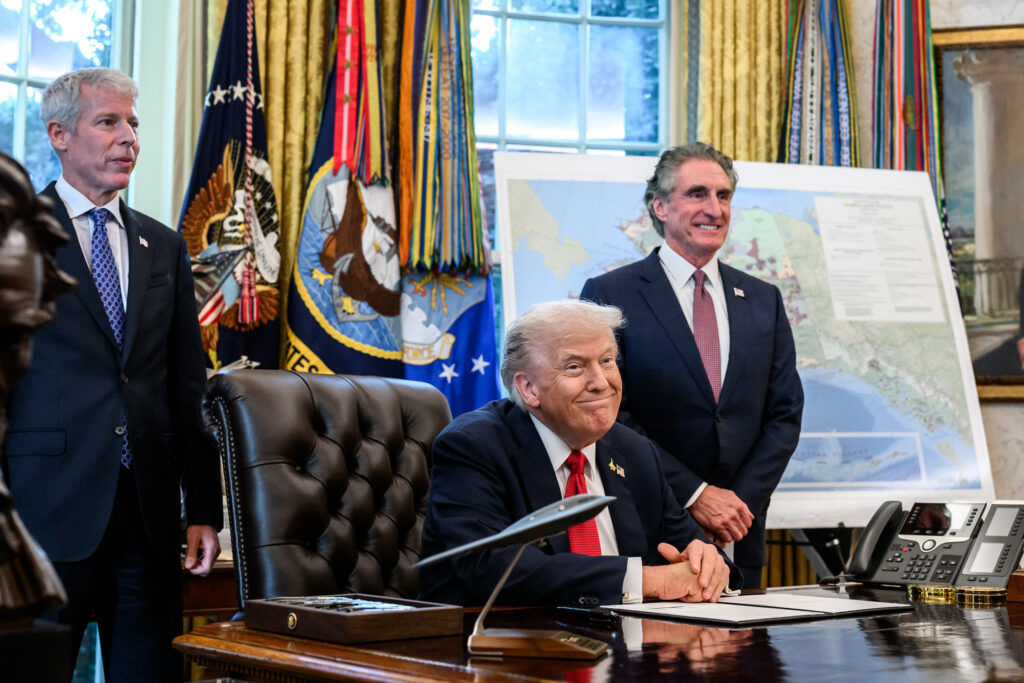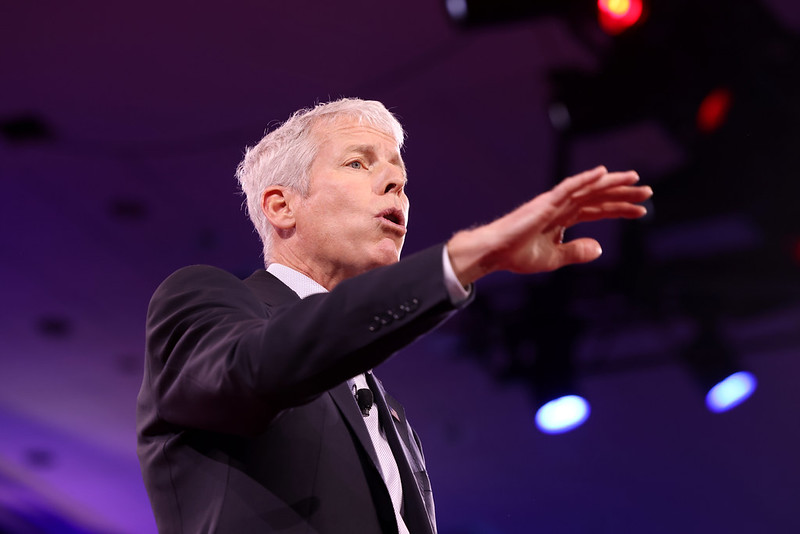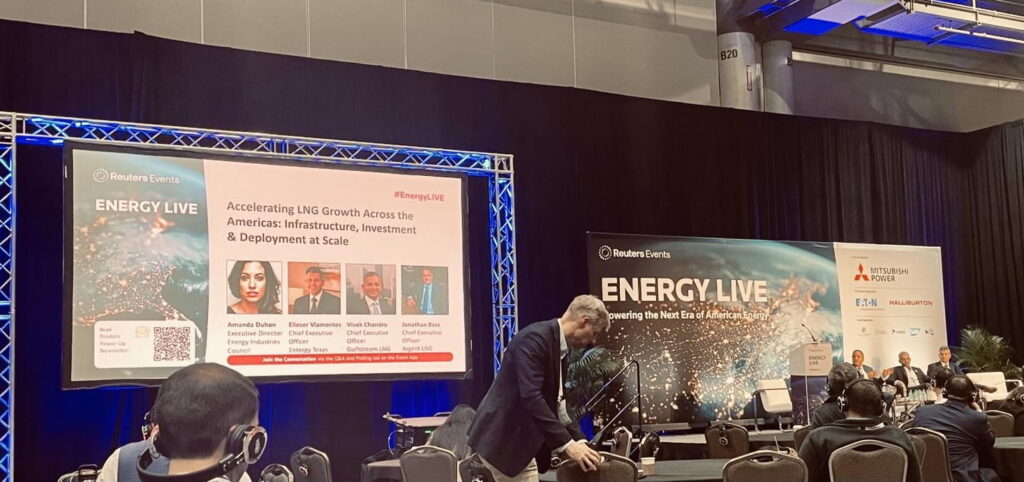It doesn’t take much to hurt the dirty energy industry’s feelings. Less than a day after NextGen Climate released a report detailing the vulnerabilities of the Keystone XL pipeline to a terrorist attack, the company fired back at the group claiming that they were being singled out.
The report was commissioned by NextGen Climate and produced by David Cooper, a retired Command Master Chief Navy SEAL, who was part of the team that took down Osama bin Laden.
In his report, Cooper lays out some of the easier ways in which a terrorist can take advantage of the pipeline’s vulnerabilities. He described the pipeline as a “soft target,” meaning that it doesn’t move, it doesn’t change, and there are huge blindspots along the route.
DeSmogBlog’s Steve Horn spoke with Cooper about the report, and you can read that story here.
Attackers could damage remote pump stations along the pipeline’s route in the northern Great Plains with just 4 pounds (1.8 kg) of readily available 1960s-era explosives, Dave Cooper, a former Navy Seal, said in the 14-page NextGen report released Wednesday.
NextGen Climate was founded by billionaire and environmental activist Tom Steyer who has been a target of the dirty energy industry since emerging on the political scene where he has vowed to spend millions in the next U.S. elections to unseat climate change denying and anti-environment candidates.
Steyer’s name being behind the report has opened up the door for attacks from the industry, and TransCanada has wasted no time in trashing the new report.
According to The Hill, TransCanada rejected the NextGen study, issuing the following statement:
“Why has Tom Steyer, who is committed to killing Keystone XL and the jobs and energy security it would provide, solely focusing on this pipeline alone?” TransCanada said. “If he were truly concerned about the safety of Americans then a broader assessment of all critical infrastructure would have been more appropriate.”
TransCanada believes that by deflecting attention onto other pipelines they can avoid scrutiny, but that is not the case here. As far back as 2003, reports showed that nearly every facet of the dirty energy industry would act as a prime target for terrorists. The Institute for the Analysis of Global Security released the following nearly 11 years ago:
Terrorist organizations have always been interested in targeting oil and gas facilities. Striking pipelines, tankers, refineries and oil fields accomplishes two desired goals: undermining the internal stability of the regimes they are fighting, and economically weakening foreign powers with vested interests in their region. In the past decade alone, there have been scores of attacks against oil targets primarily in the Middle East, Africa and Latin America. These attacks have never received much attention and have been treated as part of the ‘industry’s risk.’
However, after the attacks on World Trade Center and the Pentagon, symbols of U.S.’ economic and military dominance, terrorist organizations of global reach like al Qaeda have identified the world’s energy system as a major vulnerability and a certain way to deliver a blow to America’s oil dependent economy as well as global economy at large. With attacks against transportation networks, military bases and government installations becoming more difficult to execute due to heightened security, terrorists looking for a big bang might find oil, to quote al Qaeda, the “umbilical cord and lifeline of the crusader community,” the object of the next major assault on the west, an assault that could wreak havoc with America’s economy and way of life.
If TransCanada is feeling singled out, it is because they are being singled out. And for good reason. Analysis has already been done on existing pipelines, and it only makes sense to assess the terror risk of a new pipeline. For TransCanada to believe that they are the only ones that have been scrutinized — to paint themselves as the victims — is a complete farce.
As mentioned above, Reuters says that attacks on oil pipelines are very rare, but a quick search reveals that they are a lot more common than the news agency reported.
For example, the Revolutionary Armed Forces of Colombia (FARC) carried out at least 325 attacks on oil pipelines between 2011 and 2013. U.S. intelligence sources also uncovered an al Qaeda plot to attack oil pipelines in Saudi Arabia.
Between 2008 and 2009, British Columbia was the victim of at least five bombings that targeted oil pipelines. Intelligence agencies in Yemen uncovered more al Qeada plots to blow up oil pipelines in their country. The list goes on and on.
And the industry is well aware of the threat that terrorists pose to its operations. In the May 2012 volume of the Pipeline and Gas Journal, the threat of terrorist attacks on pipelines was addressed with an emphasis on the problems of monitoring for such activity:
In a continuing effort to remove the guesswork from pipeline operations and reduce costs, many techniques have been developed to address risks and maintenance needs in a strategic fashion. Common pipeline security measures include aerial surveillance, ground patrolling, installation of pipeline warning boards/markers, deployment of security personnel, and conducting awareness campaigns to educate habitants along the pipeline route. Advanced telecommunication systems and leak detection systems are also widely used to improve the monitoring and remote control of pipelines.
However, armed security guards cannot be everywhere at the same time. Closed-circuit television (CCTV) security cameras are effective for surveillance, but are less useful if not incorporated into a complete security system. Plus, their infrastructure costs are not economically viable. Radar is proven as a long-range water and surface-based solution, but again, is not economically viable due to the need for power and network connectivity.
The Pipeline and Gas Journal highlights numerous ways to increase the safety of pipelines, thereby reducing not only the risk of a terrorist attack, but also the risk of a spill or leak.
But putting more effective monitoring into place would cost more money, and companies like TransCanada would rather bury their heads in the sands about the dangers of their pipelines than spend a few extra dollars to ensure the safety of the public.
Subscribe to our newsletter
Stay up to date with DeSmog news and alerts






